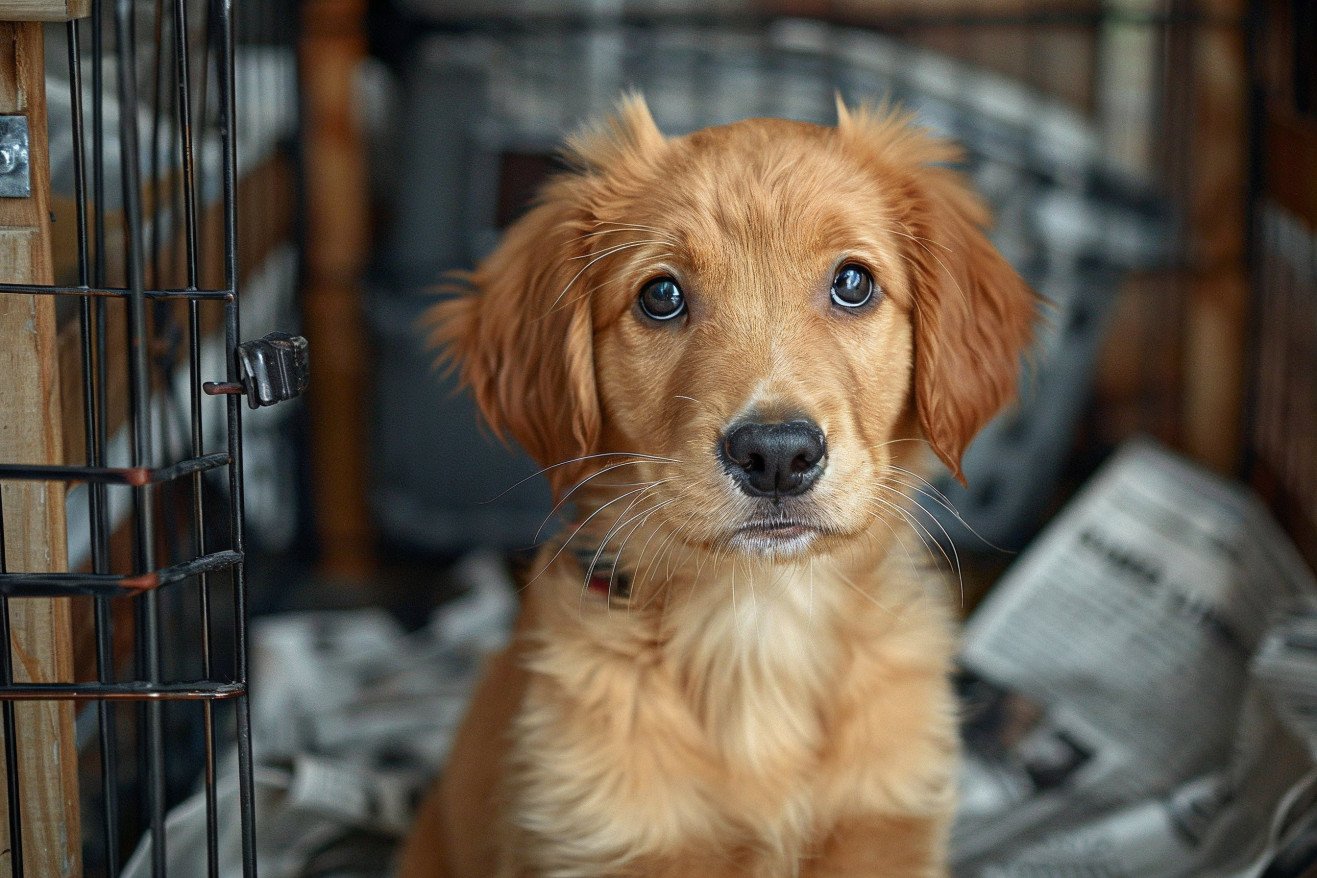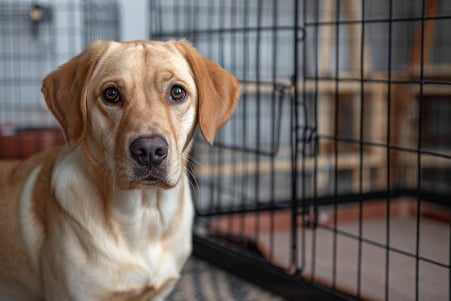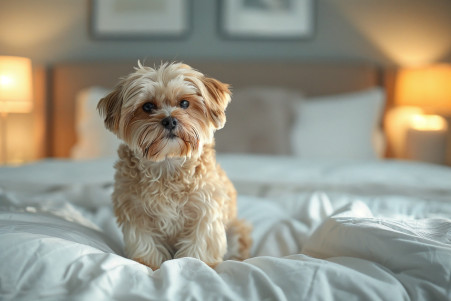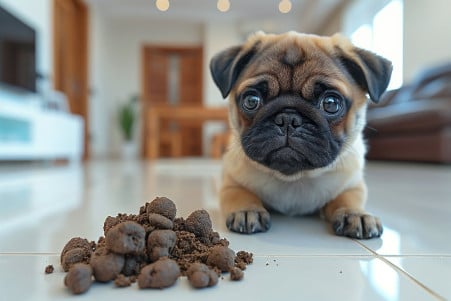Is Your Puppy Pooping in Their Crate? Here's How to Crate Train
24 April 2024 • Updated 24 April 2024

If you've recently brought home a new puppy and they're pooping in their crate, you're not alone – there are a few common reasons this can happen, and a few things you can do to help your puppy learn where they're supposed to go. Puppies have very little control over their bladders when they're first born, and they may not be able to hold it all night, leading to them pooping in their crate. The crate may also be too big, so they can poop in one corner and sleep in the other.
We'll explore the reasons behind crate soiling with insights from dog trainers and vets, as well as proven ways to successfully crate train your puppy. Using evidence-based methods, we'll discuss how to set expectations, pick the right size crate, create a schedule, and reward your puppy in a way that works. If you're patient and consistent, your puppy will be able to hold it until you let them outside.
Is your puppy pooping in their crate?
The Right Size Crate and Potty Break Schedule
Two of the most important factors in successful crate training are making sure the crate is the right size and setting a schedule for potty breaks. Puppies younger than 6 months old can't hold their bladders for more than 3-4 hours even when they are being housebroken. So the crate should be just big enough for the puppy to stand up, turn around, and lie down.
The schedule for potty breaks will depend on the puppy's age. Puppies younger than 10 weeks old will need to go out every 1-2 hours, even during the night. As they get older, you can gradually increase the time between breaks. For example, a 3 month old puppy can probably wait about 3 hours between potty breaks, while a 5 month old can probably go 5 hours. Most adult dogs can go 6-8 hours between potty breaks.
It's important to set a schedule that's appropriate for the puppy's age and stick to it. This will help the puppy learn a routine and when it's time to go to the bathroom. If you've set the right schedule and the right size crate, you should see fewer accidents as the puppy's ability to hold it for longer periods of time develops.
How to Crate Train a Puppy
Proper crate training involves a few key steps that will help your puppy develop a positive association with their crate. Faithfully Yours Dog Training explains that crates can be a great den for puppies if they are trained to use them correctly. They suggest letting your puppy explore the crate on their own when you first introduce it, rather than trying to force them inside. You can also use treats, toys, and even feed your puppy in the crate to help them feel more comfortable.
The PAWS organization says that it's important to never use the crate as a form of punishment and to make sure that it is a safe, comfortable space for your puppy. Puppies should be introduced to the crate slowly, with the length of time that they spend in it gradually increasing. You can also make the crate more comfortable for your puppy by adding bedding and other items that smell like home. With time and a positive introduction, your puppy will come to see their crate as a safe, comfortable space.
Deep Cleaning and Odor Elimination Methods
The Housebreaking Bible stresses the importance of using an enzymatic or bio-based cleaner that's specifically formulated to remove pet odors and stains when cleaning up after a puppy in their crate. You should also stay away from cleaners that contain ammonia, as the scent can actually attract the puppy back to the soiled area.
Pet Pro Supply Co. notes that it's important to clean the entire crate, including any removable pieces and bedding, to make sure that odors are completely removed. And some experts recommend using a blacklight to help you find any stains that may still be present and need further cleaning.
Even if there haven't been any accidents in the crate recently, it's a good idea to follow a regular cleaning schedule, according to Preventive Vet. This will help make sure that any old or hidden stains are taken care of, so your puppy won't be tempted to return to the same area.
Medical or Behavioral Issues
If crate training isn't working, there may be medical or behavioral issues that need to be addressed. According to Dogster, it's important to consult a vet to make sure that there aren't any infections, diseases, or dietary issues that are causing the puppy to have accidents in their crate.
The Pawsafe blog also lists separation anxiety, stress, and lack of socialization as potential reasons that a dog may be pooping in their crate. If these are the issues, you may need to work with a certified dog trainer or animal behaviorist to get to the root of the problem. It's also important to remember that these issues can take time to work through, so be patient and consistent.
If the puppy is still having accidents after medical issues have been ruled out, the AKC suggests that pet parents may want to look into changing their puppy's diet or adding supplements to help with any digestive issues. With the help of a professional and a little trial and error, you should be able to get to the bottom of the issue.
Conclusion: Setting Up the Right Conditions for Successful Crate Training
Crate training takes time, patience, consistency, and a positive attitude. It's important to make sure that the crate is the right size and that you have the right potty break and cleaning schedules in place to avoid accidents. You also want to make sure that you're using positive reinforcement to help your puppy get used to the crate.
If crate training isn't working and your dog is still having accidents, it's important to work with a vet or a certified dog trainer to make sure that there isn't an underlying medical or behavioral issue. If you can find the right approach for your puppy's specific needs, crate training can be a helpful part of a successful housebreaking plan.


